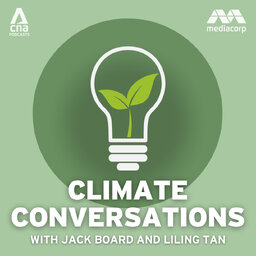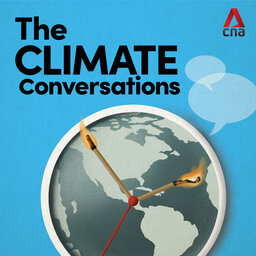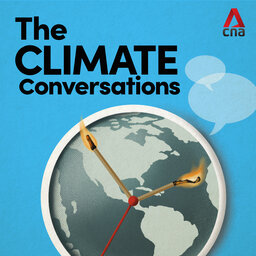The future so green: Talking to the young who will fill the climate and sustainability jobs of tomorrow | EP 46
The Ministry of Sustainability and the Environment has plans to create 55,000 new and upgraded jobs over the next 10 years. These plans need people but what are the skills and knowledge needed? Will passion and pay finally meet for future roles in sustainability? Jaime Ho speaks to two young guests who have already dipped their toes into this green future - Benedict Tan who majored in Environmental Studies at Yale-NUS and S Sandiyashini, a first year Life Sciences and Management student at NUS.
Climate Conversations
Climate news and views with Jack Board and Liling Tan. Join our hosts as they make sense of the clim…Social links
Follow podcast
Recent clips

What happens to Singapore’s gas supplies in times of war?
21:20

Green hydrogen - getting from pipe dream to a potential fuel for the future
21:28

It’s a 'code red for humanity', but what next after the IPCC’s latest report on the health of our planet? | EP 45
29:16
 Climate Conversations
Climate Conversations